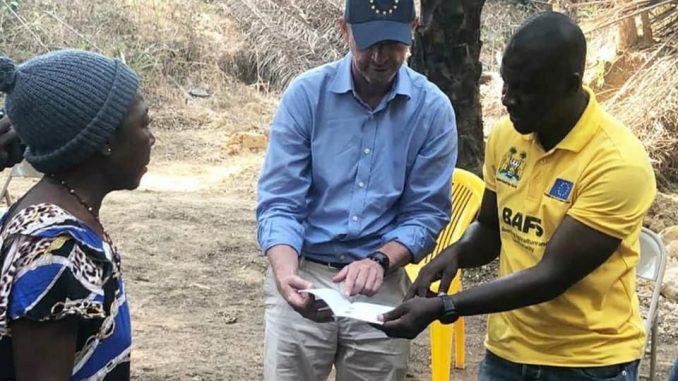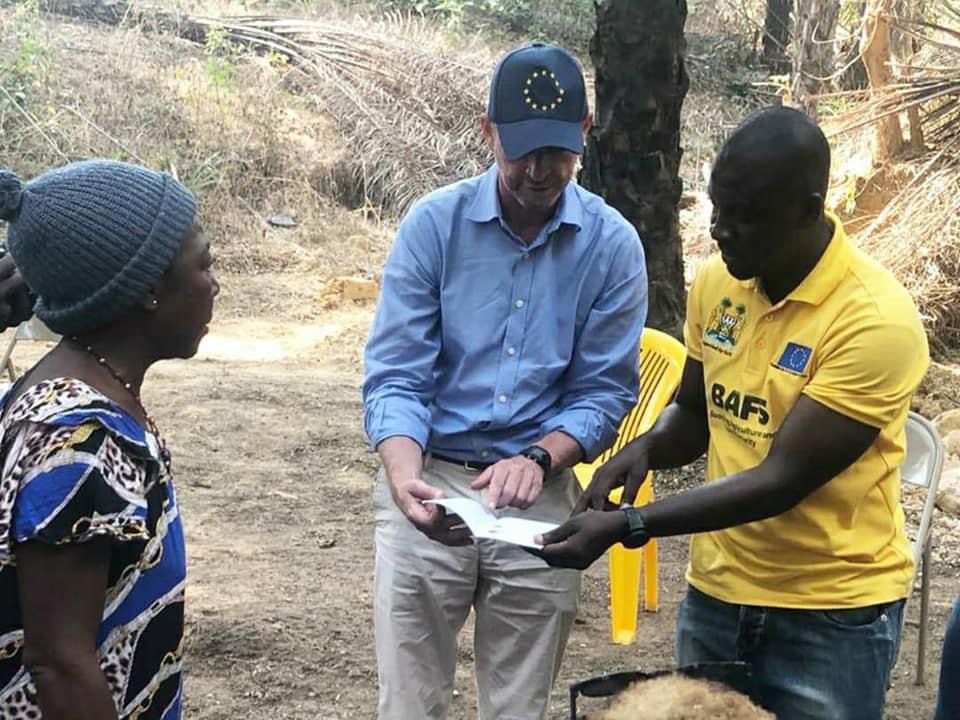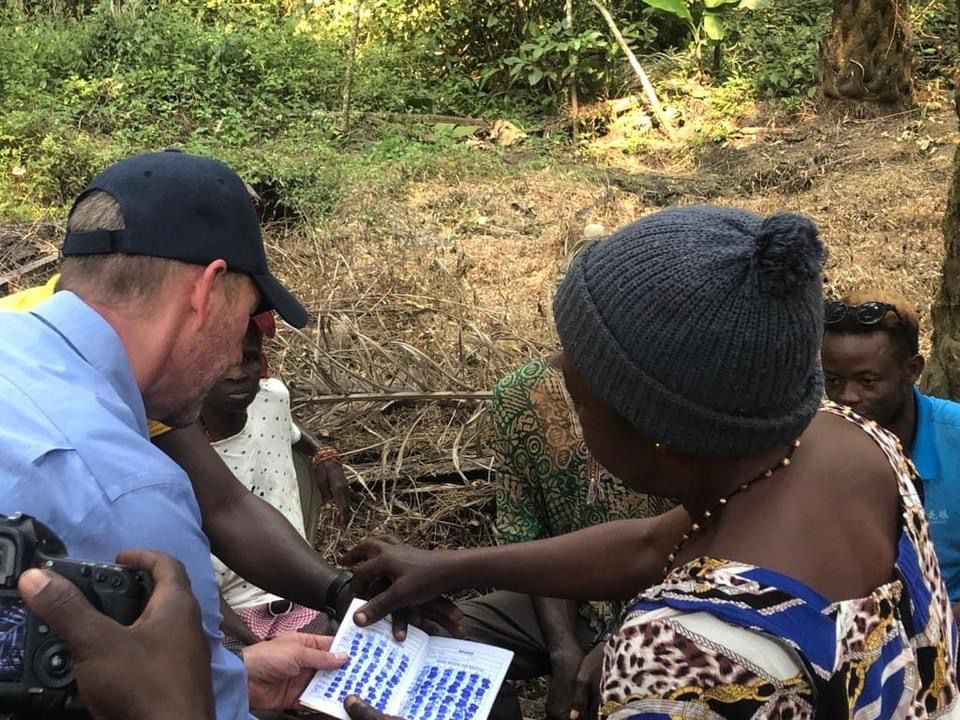
The Head of Cooperation of the European Union in Sierra Leone, Gerald Hatler, paid a working visit to two communities benefiting from the Boosting Agriculture and Food Security (BAFS) Project in Koinadugu district northern Sierra Leone.
During the visit, beneficiaries of the project shared their experiences of #livelihood transformation resulting from different intervention activities centered on the adoption of cashew farming, climate-smart agricultural practices and increase in access to finance through the Village Savings and Loan Association (VSLA) scheme.
In the Sagbangba community where 20 cashew beneficiary #farmers expressed their gratitude to the EU for the support, the farmers showed evidence of their fruiting cashew farms and the intercropping approach which provides them with food and income while they waited to harvest their cashew.
“Solidaridad West Africa trained us on how to nurse and grow cashew and supplied us with food crops like groundnuts and cassava for intercropping. The sale of these crops has provided us with additional income to cater for our families,” said Mariama Barrie, a smallholder farmer in the Samgbangba community.
In the Kafogo community, Gerald Hatler interacted with 31 beneficiaries from a women dominated group supported by Solidaridad and partners. The women took turns to explain the benefit of the Village Savings and Loan Association Scheme which serves as the only “bank” in their community. The women attested to the many challenges the scheme has helped to address. They indicated that through the VSLA some women have been able to access loans to expand their petty trading, hire labour for their farms, take care of sick relatives, and pay for school items for their kids.
The Boosting Agriculture and Food Security project has impacted the lives of 483 smallholder farmers in 18 communities in Koinadugu district mainly women and their households
The BAFS project is funded by the European Union under its 11th European Development Fund.



Leave a Reply